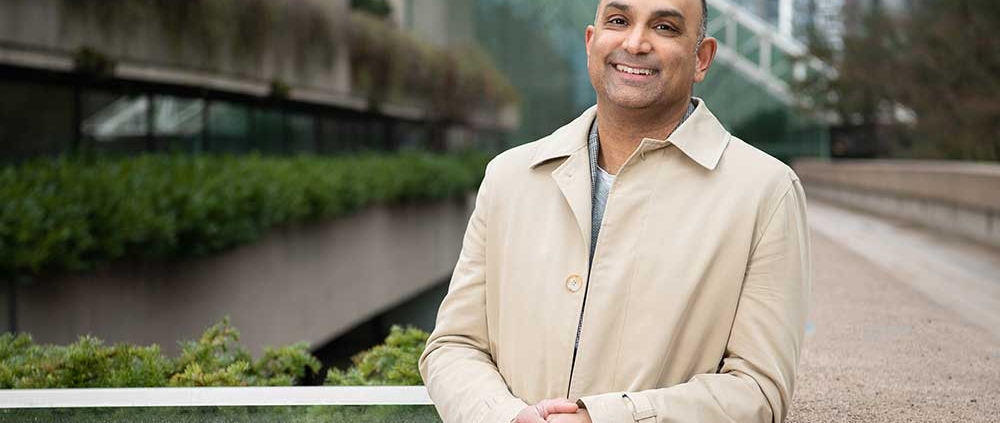Samiran Lakshman
PEA member Samiran Lakshman, a managing lawyer for large criminal cases with Legal Aid BC, illustrates the pitfalls of self-representation with an example from Family Court.
“The judge is trying to deal with heart-wrenching situations, trying to find what’s in the best interest of the children,” he explains. “And yet there’s no one there to tell the judge the important parts of the case, what’s the applicable law, what are the arguments.
“Imagine your children are at stake,” he continues, noting that those who can’t afford counsel are often people who are marginalized, for example, women and immigrants. “It’s really sad. It’s not the way it should be.”
“Legal aid is a fundamental pillar of a democratic society,” says Lakshman. “If we don’t have that in our democracy, then might becomes right; [where only] the most powerful are the only ones who get access to the justice system.”
Working from the Vancouver Legal Aid office, Lakshman oversees the budget of mainly the largest and most complex criminal cases that legal aid funds, drawing on his 23 years of experience as a Crown prosecutor. For 12 of those years, he was part of BC’s major organized crime unit, prosecuting gangsters and murderers. From 2002 to 2014, he served on the BC Crown Counsel Association, the bargaining agent for BC’s Crown Counsel.
Lakshman grew up in Saskatchewan and knew by age nine he wanted to be a lawyer. He completed a bachelor of arts in political studies at the University of Saskatchewan, then a bachelor of law at Dalhousie University. He was called to the bar in BC in 1997, after articling at a firm in Prince George.
After two decades as Crown counsel, Lakshman chose to step away from prosecuting gangsters; he wanted to work more directly to support victims and moved to prosecuting smaller files mainly in Provincial Court. As part of his role with LABC, he also manages the budget for the lawyers who represent more than three hundred people who were arrested at the Fairy Creek logging protests on Vancouver Island between 2020 and 2023.
It was the chance to help people that drew Lakshman to a career in law.
“I was captured by the idea that there was a job where you could have a say in the values and guidelines that all laws have to conform to,” he explains, referring to the Canadian Charter of Rights and Freedoms.
At LABC, Lakshman accomplishes his objective in a very tangible way: his work upholds Canada’s democratic values and safeguards the judicial system by ensuring that people in need can exercise their right to a fair trial.

